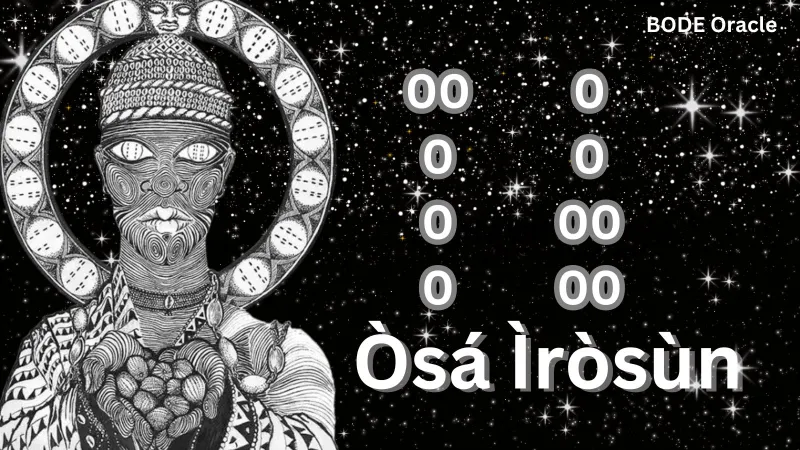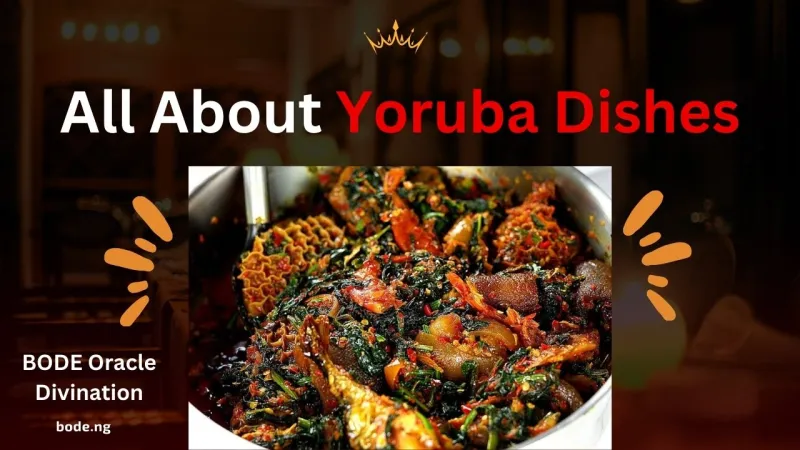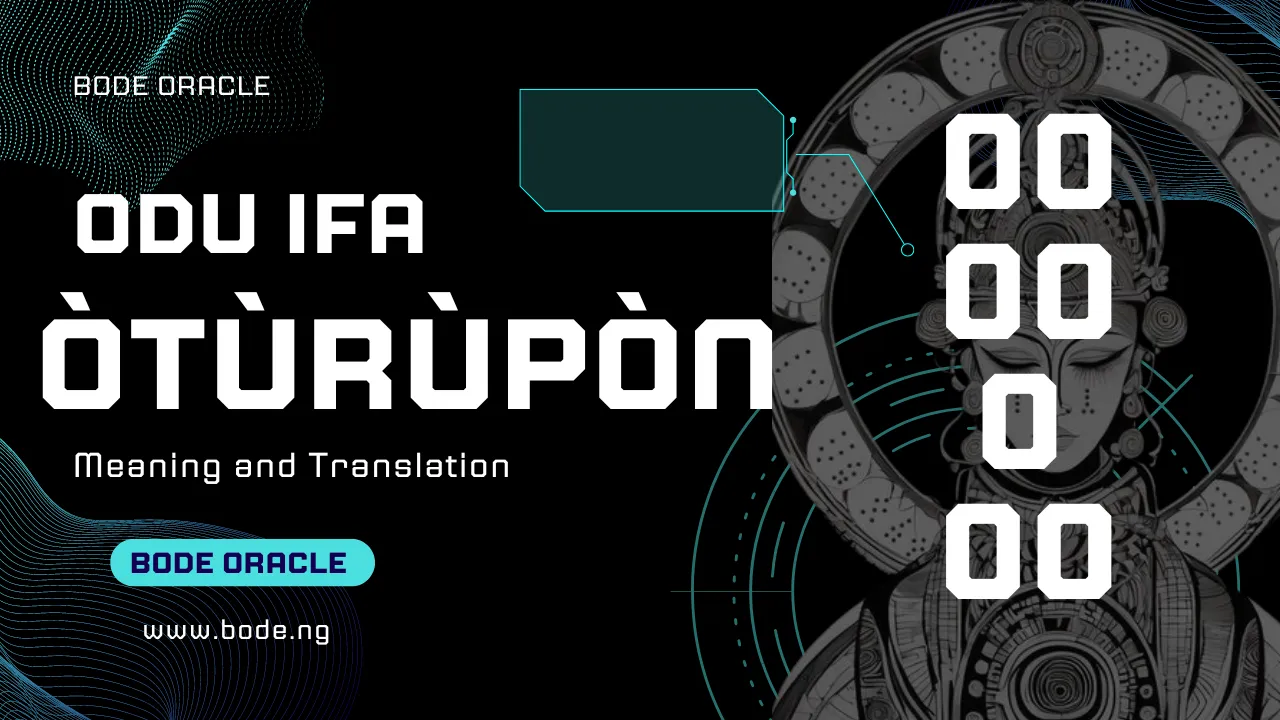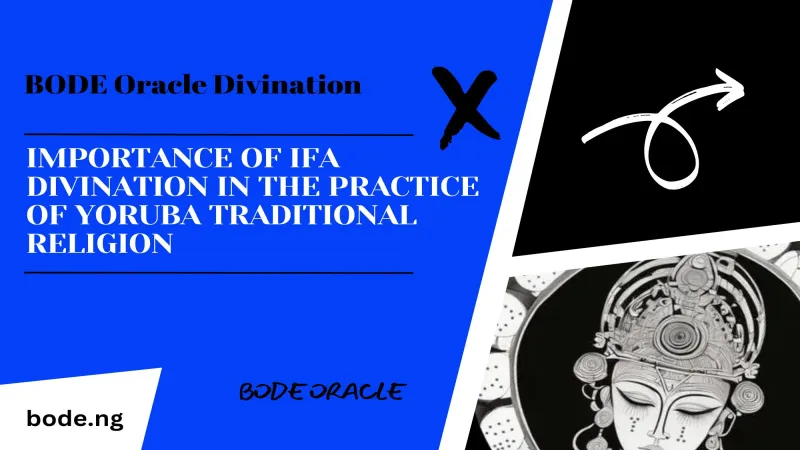In the Odu Ifa Osa Irosun, Ifa highlights the significance of maintaining harmony within the family, the support of earthly and spiritual communities (Egbe), and the importance of making sacrifices to Ori, Egbe, and Egungun.
This Odu is a blend of two primary Odus: Irosun (representing transformation) and Osa (symbolizing spirituality and secrets). The combination of these two brings a special set of teachings and lessons.
Osa Irosun consists of a series of verses, each carrying a unique message or insight. These verses are often expressed in poetic and metaphorical language, requiring careful interpretation to uncover their full meaning.
The Odu uses metaphors, allegories, and mythical references to convey its teachings. The symbols within it are rich in layers of meaning, prompting deeper thought and reflection.
The language used in Osa Irosun is also important, filled with proverbs, poetic expressions, and Yoruba idioms, making it both lyrical and profound.
Want to know how far Ifa has spread? Check out our detailed guide on where Ifa religion is practiced.
Analyzing these linguistic elements offers a deeper understanding of the cultural context and the true message of the Odu. Additionally, Ifa emphasizes the role of good character and how it affects one’s relationships and interactions.
Followers are encouraged to avoid harsh behavior, instead treating others with kindness and divine love. By following the guidance of Olodumare as communicated through Orunmila, individuals can build good character and live a virtuous life.
If you're looking to learn more about Ogundabede, don’t miss our detailed post on what Odu Ifa Ogundabede is.
Irosun in Ifá Divination
The Odu Ifá Irosun is deeply connected to themes of abundance, sustenance, and the dynamics of family and community life. It represents the nurturing aspects of existence and highlights the importance of both personal and collective growth.
Irosun focuses on the flow and transformation of life, touching on the natural cycles of continuity and renewal, symbolizing life’s ongoing rhythm.
A key theme of Irosun is reincarnation, reflecting the belief in the cyclical nature of life. It also addresses fear and loss, recognizing the emotional challenges people face.
The Odu speaks of internal conflicts, represented by the inner demon Elenini, and societal structures that shape our experiences. The Orishás associated with this Odu, such as Yemanjá, Oshun/Obá, Oyá/Shango, and Osun (representing consciousness), contribute to its rich symbolism, each adding layers to its teachings.
At its core, Irosun is linked to abundance, family, and the interconnectedness of communal bonds. It is under the influence of Orunmila and guided by the Orishas Yemanjá and Oshun, who represent love, fertility, and the power of water.
To gain a deeper understanding of Ifa divination, check out our detailed guide on all about the 16 Odu Ifa and their meaning.
This Odu also brings the energy of Eshu, representing karma, emphasizing wealth, abundance, and fertility—both materially and spiritually. Meanwhile, Elenini represents internal struggles, and Osun symbolizes the guidance of consciousness.
When Irosun appears in divination, it calls attention to matters of abundance, family, and community relationships. It encourages individuals to nurture personal growth while contributing positively to the well-being of their community.
This Odu also speaks of the importance of fostering harmony and balance in family interactions, advising a path of unity and support within one’s community.
For those influenced by Irosun, their life path often involves deep involvement with family and community. It emphasizes nurturing, support, and contributing to the prosperity of one’s surroundings.
The destiny connected with Irosun is intertwined with the growth and flourishing of both personal and communal relationships.
In Yoruba culture, Irosun holds a special place with its teachings rich in lessons about family, community support, and the nurturing aspects of human life.
It is a symbol of fertility, productivity, and the forces of nature that sustain life. The Odu underscores the need for balance in giving and receiving care, highlighting the importance of harmony and prosperity within the community.
Ifá teaches through Osa Irosun that anyone for whom this Odu is revealed should make sacrifices, particularly to the elders of the night (Iyami), to ensure prosperity.
Ifá promises that the person will rise to a position of greatness, with others serving under them, and assures that they will never live as a servant or slave to anyone else.



